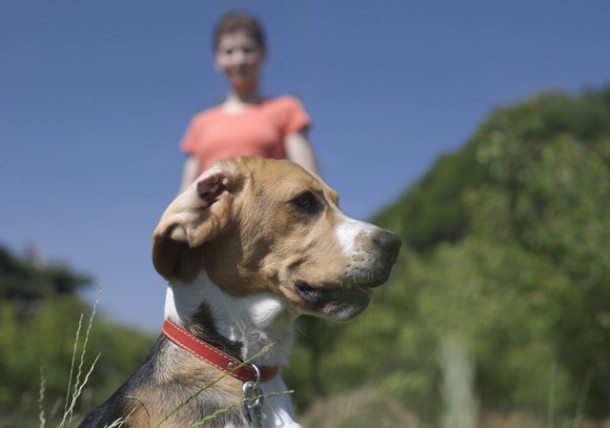Preventing Allergies in Your Pets

Blooming flowers, the start of baseball season, sunshine and everything turning green at the start of spring really help me get rid of my winter blues. However, the other thing that spring brings with it is allergies. Did you know that the grass, pollen, dust and mold that can cause your eyes to tear up and your nose to run can also affect your pet? Humans and animals can have very similar allergic triggers, but it is how the dog and cat respond to these triggers that can be very different. Some dogs and cats will exhibit runny eyes and nose, but most of them will become excessively itchy if they are having an allergy issue.
Allergy Prevention is Key
Is your dog or cat keeping you up at night with his itching, licking and chewing? Does he get “hot spots” or ear infections every spring? He may have an allergy! Allergies can be frustrating because they cannot technically be cured. However, we can try to successfully manage them. There are some things you can do at home to help prevent those hot spots and ear infections before they start. Again, these are recommendations for preventing allergic issues. If your pet is already showing the signs of allergies, you need to call your veterinarian!
First and foremost, use veterinary-approved, species-specific flea prevention. Flea bites are one of the most common allergies in dogs and cats. We call this reaction flea allergy dermatitis, and if your pet is allergic to fleas, one bite can make your cat or dog miserable. For flea control and prevention to be effective, every animal in the house must be on an appropriate preventative, even if they only rarely go outside. Fleas can be very difficult to find on cats since they are so great at grooming, but if your cat is itching, losing fur or developing scabs it is time to get them in for a consultation. It is very common for dogs and cats with flea allergy dermatitis to have significant secondary skin infections requiring treatment prior to the skin healing and returning to normal. Talk to your veterinarian today about which flea products are safe for your pet.
Bathing your pet is another huge component to preventing allergic issues. Now, before I hear complaints about having to bathe your cat, hear me out. Any type of rinsing, feet washing or wiping down of the skin, coat, ears and feet is helpful if your pet has allergies, as this will help physically remove the allergens from your pet. For itchy dogs, I often recommend bathing and cleaning ears at least once a week and using hypoallergenic baby wipes on the feet and belly in between bathing. For cats, the hypoallergenic baby wipes are great for regular fur wipe downs. Anything you can do to decrease the amount of time the allergen (commonly grass, pollen, dust and mold) spends on the skin or coat is great. Veterinarians are great resources as to what products are the best at restoring and protecting the skin and coat, so check in with yours today for some good recommendations!
Diet Plays a Role
Let’s also talk about your pet’s diet. Nutrition plays a critical role in the health of skin and coat. The healthier the skin, the less prone to infection and irritation it may be. Also, discuss with your veterinarian if fish oils may be appropriate for your pet. Fish oils have anti-inflammatory effects and are great for strengthening the skin’s natural defenses against inflammation and infection.
There are many medications and products that can help your itchy pet! The most important thing is to be proactive about your pet’s skin. Do not wait until hair loss, redness or scabs appear to seek help. We can avoid a lot of complications of allergies by treating them early and with multiple approaches. Don’t let allergies ruin this wonderful time of year for you or your pet. Talk to your veterinarian today if you think your pet may be suffering from allergies.
Nancy Turner, DVM, is a graduate of Texas A&M College of Veterinary Medicine who lives in Dallas, Texas. Dr. Turner practices at ReadiVet Collin County.


[…] are a widespread reaction in dogs, so prevention represents one if not the best way to deal with […]
Thank you for the great advice! Unfortunately, my dog is reactive to inoculations. She swells badly and the swelling can last for weeks. She becomes tired, does reverse sneezing, and antihistamines do not provide much relief. I finally found a vet who recognized what was happening. He was amazed at her reaction to her rabies shot. I was horrified to learn she was in danger of anaphylactic shock. No more inoculations for her! Keep up the good work! Gig ‘em!